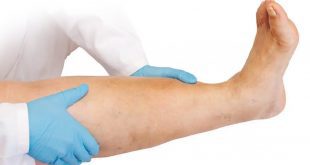 The next flu season will soon be among us. With each year passing, viruses mutate, adapt, and become more virulent, causing more illness, and sometimes hospital visits. Protecting against some of these dangerous infections often begins by getting ourselves properly immunized. Immunizations help our own body produce essential antibodies that help fight the infection when we do fall ill. Without them, our immune systems are vulnerable to attack and can result in significant illness.
The next flu season will soon be among us. With each year passing, viruses mutate, adapt, and become more virulent, causing more illness, and sometimes hospital visits. Protecting against some of these dangerous infections often begins by getting ourselves properly immunized. Immunizations help our own body produce essential antibodies that help fight the infection when we do fall ill. Without them, our immune systems are vulnerable to attack and can result in significant illness.
This article will highlight some of the most important immunizations for the adult population in The Villages and surrounding areas. We will take a quick glance at them and other important safe guards to keep us healthy in the long haul. Remember, primary prevention is always better than secondary or tertiary measures.
Influenza A/B vaccine:
This is commonly known as the Flu shot. Although Flu shots are recommended annually for all ages 6 months and above, they are specially emphasized for adults over 50 years, and children 6-59 months in age, due to vulnerable immune systems. Immunization can reduce illness by 50-60% according to the CDC. If you have a mild/moderate/severe egg allergy, talk to your doctor about where you may appropriately receive the vaccination. For patients 65+, CDC has also made new recommendations to consider the “HD” or high-dose Flu shot, due to poorer immune systems above 65 that don’t mount sufficient immunity with a regular dose Flu shot. These vaccines take about two weeks to build immunity, and are typically administered in September of each year for the upcoming flu season.
Pneumonia vaccines:
Pneumonia can be a very common cause for hospitalizations and complications in the older populations. There are essentially two vaccines for pneumonia; the PPSV-23, and PCV-13. If you’re less than 65 years in age, you should receive at least 1 dose of PPSV-23, but after 65 you should receive both forms of vaccines 1 year apart for complete immunity. However, if you are immunocompromised, or have other chronic medical conditions, your primary care provider may recommend additional dosing for adequate immunity.
Shingles vaccine:
We all know a friend, a neighbor, or a family member who has had Shingles; a blistering rash that can be excruciatingly painful. The purpose of the vaccine is to reduce recurrence of shingles, reduce duration of illness at a future episode, and also to prevent a complication that causes persistent pain in the location of the rash days/months/years after the rash goes away (post-herpetic neuralgia).The Shingles vaccine is recommended for patients over 60 years who have had chickenpox when they were younger. If you are uncertain about having chickenpox as a kid, your doctor can perform a blood test to confirm. It is a live virus vaccine, so people who have certain types of medical illness or are receiving certain medications that compromise immune systems, may not receive the vaccine. Talk to your doctor, to know if it is safe for you to have it.
Tetanus booster:
Tetanus; is a condition that causes severe muscle stiffness and sometimes fatal illness, from a toxin that is produced by the tetanus bacterium. It usually enters the body through an open wound. A tetanus booster vaccine is recommended every ten years for adults. Your doctor may recommend that you get a TdaP vaccine that covers not only tetanus, but also diphtheria and Pertussis. Pertussis (whooping cough) cases were reported in many populations a few years ago, and hence the CDC recommended the TdaP for older adults. Due to insurance coverage issues for this vaccine, you may have to have an open wound to receive a booster or TdaP vaccine. Note: if you do have a wound that is considered significantly dirty, your healthcare professional may recommend you still get the booster, even though it may not be 10 years since your last dose.
I hope this information was helpful. Talk to your doctor about getting these vaccinations. Depending on your circumstances, pregnancy status, medical conditions, these recommendations may have some changes. Also depending on your current employment and intended travel plans, your doctor may recommend other additional vaccinations. Remember, prevention is always better than cure.
Tuan K. I. Dean, MD
Tuan Dean is a Family Practice physician who graduated from Ross University School of Medicine. He completed his clinical internship and residency at University of Massachusetts Medical School. Dr. Dean currently practices family medicine, at the Lady Lake and Tavares location of Internal Medicine Practices.
Lady Lake – The Villages: (352) 391-5299
Tavares: (352) 742-1707
Check Also
Obstructive Sleep Apnea & Oral Appliances: A Solution for a Good Night’s Sleep
By Richard W. Rozensky, DDS, D.ABDSM Sleep apnea affects more than 25 million people in …
 Central Florida Health and Wellness Magazine Health and Wellness Articles of the Villages
Central Florida Health and Wellness Magazine Health and Wellness Articles of the Villages



